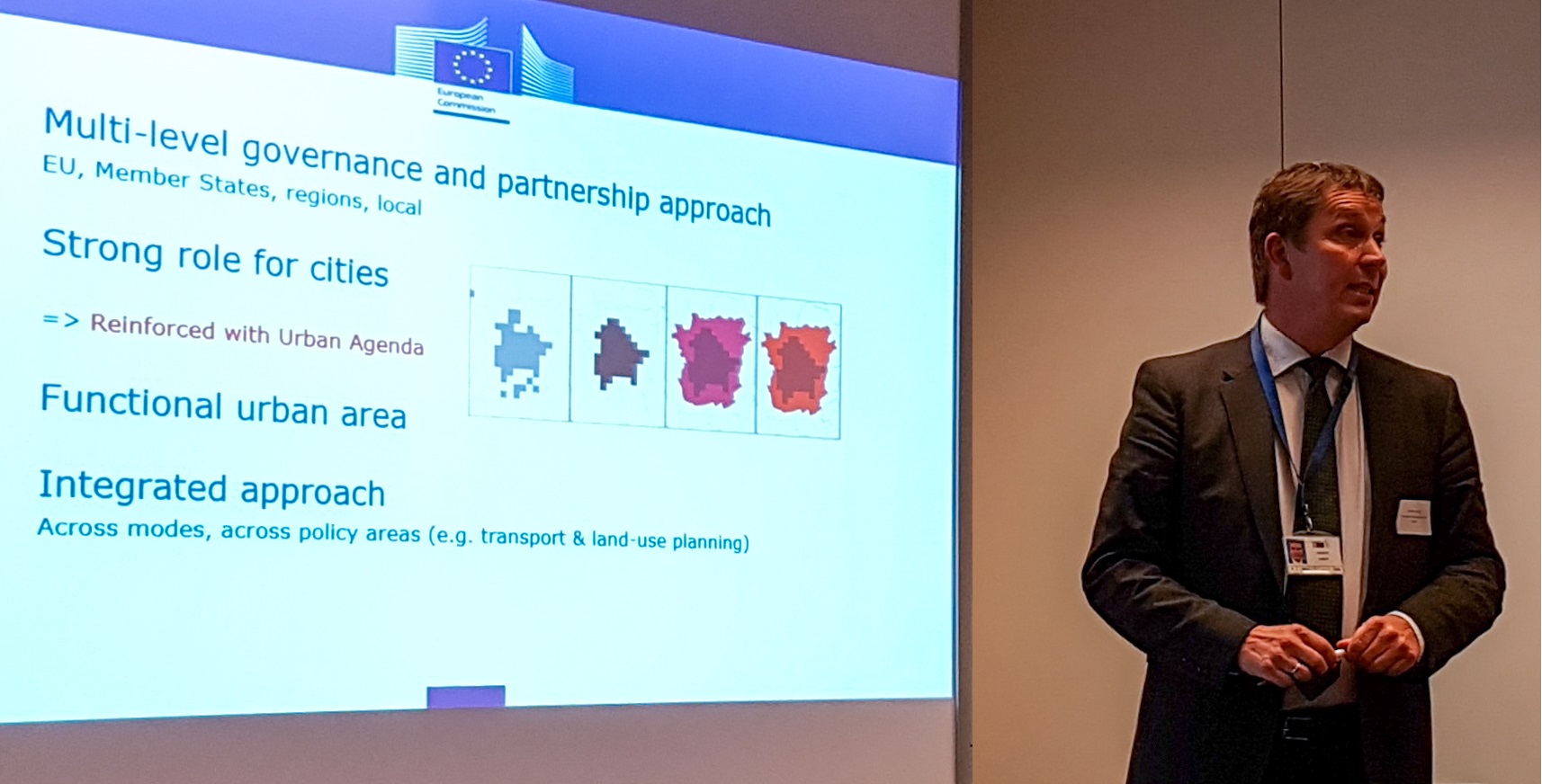
Future Cycling Conference: Afternoon Session
The Future Cycling conference kicked off the second half of its programme with a presentation from Pascal Smet, Minister of the Brussels-Capital Region, responsible for Mobility and Public Works. Our thanks to the Brussels Capital Region for kindly agreeing to co-host the event.
Mr Smet called on everyone to help our cities “go back to the future of cycling”, observing that “in Brussels, 150 years ago 40% of the people living in Brussels were cyclists”. In 15-20 years, he feels, “people will say that the biggest mistake that mankind ever made was the invention of the individual car, because it was very expensive, polluting and very inefficient at moving people around”.
These are strong words from the Belgian minister, but he moved forwards to urge the cycling community to understand that if they learned from the car industry, and taught themselves to market cycling with emotion and feeling, that they would have much more impact in changing the perception of cycling. “The car industry for 60 years, sold the idea of, my car, my freedom […], but in reality today it’s, my car, my traffic jam, and we should say [instead] that it’s, my bicycle my freedom”.
Next the conference was addressed by Vincent Leiner, Team Leader of the Smart and Sustainable Growth Unit at DG Regio, EC.
Mr Leiner addressed the European Commission’s current and future plans for supporting cycling, noting clearly that cycling projects were due to be allocated more money from the ERDF, and that the increase in funds allocated from the previous 2007 – 2013 budget to the current 2014 – 2020 budget should be seen as indicative of what we expect from the European Commission in the future. The Post-2020 budget proposal for example contains a commitment that a minimum of 6% of the ERDF will go to locally lead development partnerships, a category that many cycling policy initiatives/programmes are likely to fall under.
The 2nd half of Mr Leiner’s presentation had a strong emphasis on DG Regio’s preference for new government approaches and particularly the incorporation multi-level attempts to implement transport policy. Key to him was to underline that whilst “it might be difficult to argue that your cycling project is a flagship project, it is very easy to argue that you cannot have an integrated strategy without cycling”.
The last two speakers were the ECF’s Holger Haubold, Fiscal and Economic Policy Officer, and Adam Bodor, Advocacy and EuroVelo Director.
Mr Haubold spoke passionately about some best practice examples of cycling projects which made a big impact, and suggested policy approaches that cities and regions could use to gather money to spend on cycling projects. He looked at parking fees, gasoline taxes and congestion charging as classic examples, but also innovative ideas for potential private sector sources, as well as a suggestion that links closely to the health benefits of cycling, the possibility of working with health insurers to spend money from their preventative funding streams on cycling.
Mr Bodor addressed the ‘concrete’ topic of cycle highways, as an example of a type of cycling project that can have a dramatic impact on commuter trips. In Mr Bodor’s vision, cycle highways are the “backbone of a cycling network”, which can be branded cohesively like a network of motorways or metro lines cohesively, to become a ‘mobility product’, letting consumers (cyclists) identify and search for an expected product. If this branding is to be expanded to national or regional levels however, Mr Bodor warned, it is important that a common definition of a cycling highway is developed, so users can expect a certain quality of service from the product.
Giving the example of Flanders in Belgium, Mr Bodor pointed out that it is crucial that cycle highways are used to connect urban hubs to their surrounding regions, and not necessarily other cities, since these are too far away in most cases. Most important is that cycle highways should be built to come all the way into a city, seamlessly crossing geographical boundaries, and not stopping at an outer ring road, or political boundaries, but delivering cyclist’s right into the heart of the city.
Network/Project Involved:
Contact the author
Recent news!
Upcoming events
Contact Us
Avenue des Arts, 7-8
Postal address: Rue de la Charité, 22
1210 Brussels, Belgium









